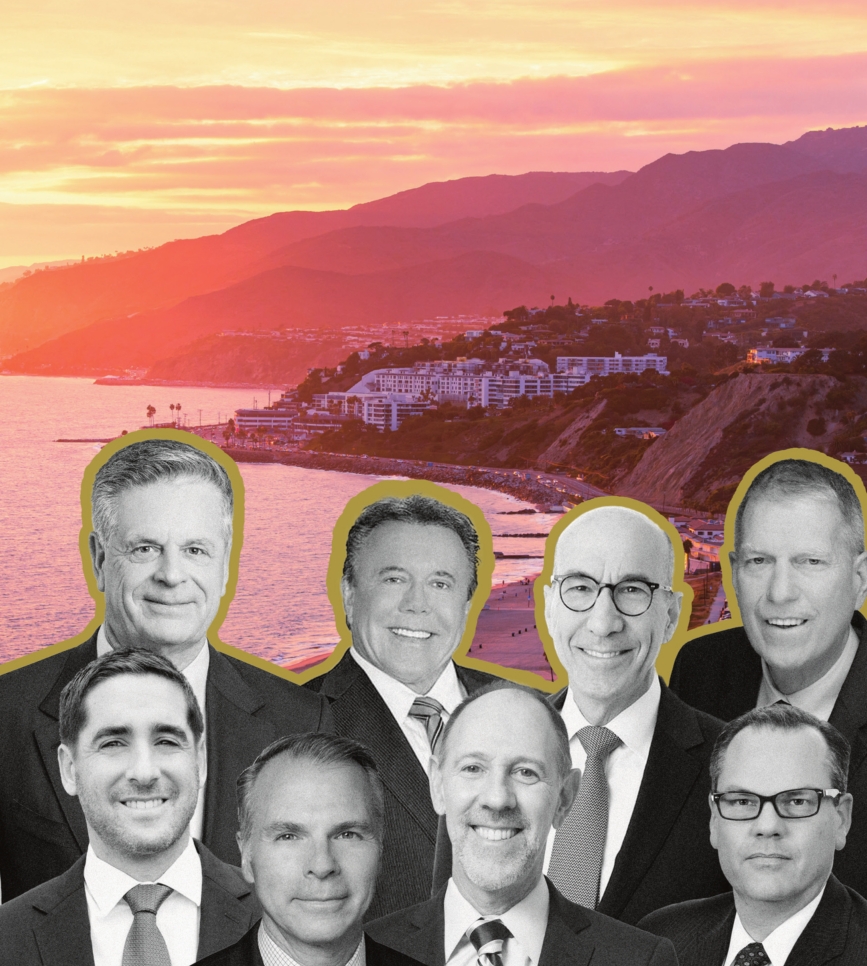
In the wake of the recent devastating fires, Los Angeles faces the immense challenge of rebuilding homes, businesses and communities. To help those affected navigate this complex process, we turned to eight experts of diverse specialties to discuss critical considerations, from insurance claims and contract negotiations to zoning regulations and government aid. The following article excerpts highlights from that commentary.
How does the recovery process influence a post-disaster economy?
Wealth disparities and insurance availability can play a large role in post-disaster economies. Wealthier residents and businesses often rebuild more quickly while lower-income residents may take insurance payouts, or cash buyouts, and move elsewhere. Those without financial safety nets often face prolonged recovery periods, forced relocation or even permanent displacement. Disadvantaged individuals and businesses struggle to regain stability, whereas wealthier ones emerge stronger through rebuilding efforts. This unequal recovery process can exacerbate existing economic inequalities within the affected community.

Jay HAWKINS
Vice President & Senior Economist
PNC Bank
How can we streamline permitting processes to accelerate rebuilding while maintaining safety?
Los Angeles County, the city of Los Angeles and the city of Pasadena should expedite permitting for modular and prefabricated housing, mirroring the streamlined process established for accessory dwelling units (ADUs). By preapproving certain architectural designs and modular structures, these jurisdictions could significantly reduce permitting and inspection timelines, accelerating reconstruction efforts. Several promising steps have already been taken to facilitate rebuilding. The city of Pasadena now offers virtual planning consultations for property owners affected by the fires, enabling them to meet with planning and zoning officials remotely, eliminating the need for in-person visits. Additionally, Governor Newsom has temporarily suspended permitting and review requirements under the California Environmental Quality Act (CEQA) and the California Coastal Act, further easing regulatory barriers to reconstruction.

David HITCHCOCK
Shareholder
Buchalter
What impact will the wildfires have on L.A.’s housing market and infrastructure? What is next for developers, construction and brokerage firms?
While wildfires pose significant challenges, they also present an opportunity to reimagine and expand housing within the existing landscape. By embracing innovative, forward-thinking solutions, we can develop more resilient and sustainable communities. In terms of infrastructure, new construction will incorporate advanced fire-resistant materials, underground utilities and modernized landscape design to mitigate future risks.
Additionally, a more robust and readily deployable fleet of firefighting aircraft will be essential for rapid response. Technological advancements will also play a crucial role, with emerging innovations designed to enhance fire prevention and protection at the individual home level.

Randall S. LEFF
Partner
Ervin Cohen & Jessup LLP
What role should the private sector play versus government agencies in rebuilding?
The private sector should play a critical role in rebuilding efforts in partnership with public agencies, as well as affected property and business owners. Public agencies should focus on setting policies, allocating resources and providing oversight, while private firms – particularly those in essential services such as environmental remediation, waste management, engineering – should drive execution to achieve meaningful outcomes that meet the needs of community members. Leveraging the efficiency of the private sector in such a partnership would enable the strategic deployment of capital and accelerate recovery efforts, ensuring sustainable, long-term solutions that foster economic revitalization and community resilience. Effective collaboration between the public and private sectors is essential for rebuilding our community.

Dan SHEA
Managing Director
Objective, Investment Banking & Valuation

How will the role of the federal government affect the wildfire recovery efforts?
Effective collaboration between federal, state and local governments is essential to rebuilding L.A. and preventing future disasters. The federal government plays a critical role in cleanup, rebuilding and addressing the climate issues underlying these wildfires. Leadership must start in D.C., with cooperation at all levels of government to clean up toxic waste, implement a recovery plan and provide resources for the rebuilding effort.
Political finger-pointing only hinders progress and erodes public trust and does nothing to advance efforts to rebuild our communities. While long-term climate action from Washington seems unlikely, this disaster offers the President an opportunity to shine by supporting the wildfire recovery efforts. Time will tell whether he rises to the occasion or undermines those efforts by gutting federal agencies like FEMA and EPA that are essential to our recovery effort.

Stephen J. KAUFMAN
Founder & Principal
Kaufman Legal Group
What are law firms and accounting firms doing to help businesses and individuals in need? Beginning the day after the fire, major disaster law firms began circling like vultures to sign up clients for suits against Edison, LADWP and others. But right now, fire victims don’t need that from lawyers. What individuals and businesses need is a steady advisor to help them over critical hurdles, like understanding their insurance policy that was written by insurance companies in a confusing format that most people never even tried to read when they purchased it. It just went in a drawer and premiums were paid every year with little mind paid to it. To avoid being taken advantage of, individuals and businesses need to push back against an overly eager adjuster to get what they deserve. At Hill Farrer, we immediately formed a Disaster Relief Team with lawyers equipped to handle the immediate, day-to-day questions.

Dean DENNIS
Managing Attorney
Hill Farrer
What are the legal and financial implications of selling your property, rather than rebuilding, after a utility-caused wildfire?
What to do with your property after a wildfire is a highly personal decision, but one that should be made with legal implications in mind (if possible). Choosing to sell your property after a wildfire, instead of rebuilding, can significantly decrease a recovery through litigation. There are two ways of calculating fire damages to real property: (1) the diminution in fair market value (“DIV”), or (2) the cost to cure or repair the property. The DIV is the difference between what a neutral third party would pay to buy the property the day before the fire versus immediately after the fire. The cost to cure/repair is the amount it would cost to repair the fire damage and restore your property to its pre-fire condition (e.g., cost to rebuild, repair damage to structures, remediate erosion and/or replace trees and landscaping). In nearly all cases, the DIV is substantially less than the cost to cure. If you have specific questions about the legal implications in your case, you should discuss those in a privileged conversation with your lawyer.

Dave FOX
Founder
Fox Law APC
How can people recover from the emotional impact of the fires?
Losing your home in a fire causes a great deal of emotional distress. Not only have you lost your home but often your community as well. With these recent fires in particular, entire communities were destroyed including schools, churches, synagogues and community centers. You should not underestimate the impact of evacuation, relocation and rebuilding after a fire. It is important to seek professional help if you are experiencing trauma as a result of a fire. As a law firm, we work to secure compensation for our clients for the economic damages they have suffered, including losing their homes, while also seeking compensation for the emotional impact on their family so they have the resources to get the help they need.

James P. FRANTZ
Attorney
Frantz Law Group

To view or share this content online, use this QR code.